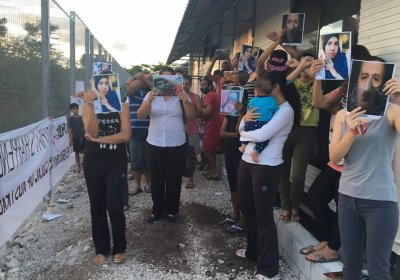As the tropical sun set over Manus Island detention centre on November 23, Walid Zazai wrote on Twitter for the final time that night. He reflected on the day as:
“A day of horror. A day of fear. A day I will never forget.
“I thought I’m back in Afghanistan in a war zone. There was no way to hide, just the sky.
“Friends have been beaten, have been taken by force to town centres.
“Don't know what will happen tomorrow. Remember us in your prayers.”










